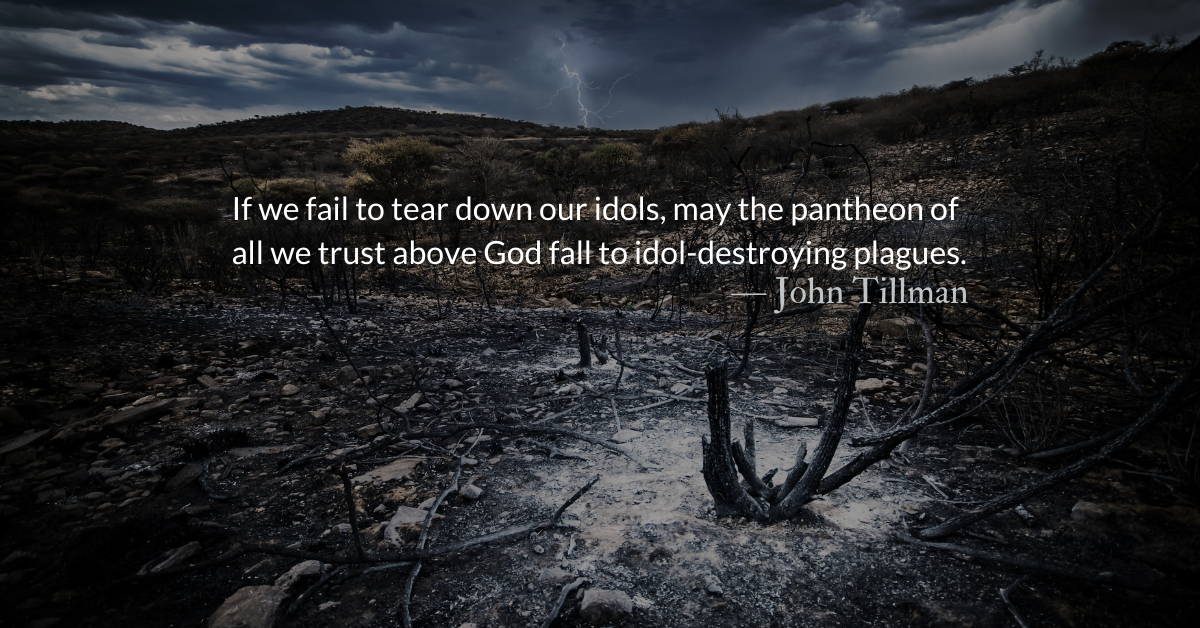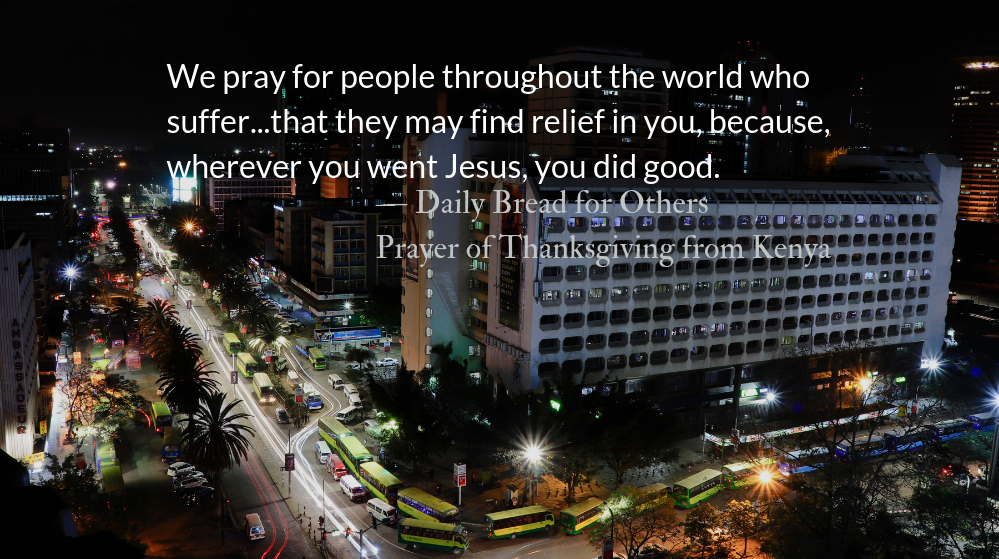Scripture Focus: Exodus 9.13-14
13 Then the Lord said to Moses, “Get up early in the morning, confront Pharaoh and say to him, ‘This is what the Lord, the God of the Hebrews, says: Let my people go, so that they may worship me, 14 or this time I will send the full force of my plagues against you and against your officials and your people, so you may know that there is no one like me in all the earth.
Reflection: Idol-Destroying Plagues
By John Tillman
We have become jaded with the phrase “unprecedented” regarding the developments of the past year and have often seen catastrophes “of biblical proportions,” which is typically a reference to the Egyptian plagues.
The plagues are intentional, not random. They are God’s frontal assault on the Egyptian pantheon.
When we think about ancient gods and religions, we often think about them too mystically and “religiously.” There was no such thing as the separation of religion from public life in ancient times. Pantheons of deities were just a part of normal life — ordinary and practical. One example in the New Testament is paying taxes.
The tax the Jewish religious leaders questioned Jesus about was seen as a religious act. The coin was stamped with “Caesar is Lord.” Polycarp, would eventually be martyred for refusing to repent of saying “Jesus is Lord” instead of “Caesar is Lord.”
Making direct analogies from the Bible to our experiences today is not typically helpful or wise. One way this is damaging is analogizing leaders as being similar to leaders in the Bible. Too many leaders and teachers, hailed as being like Moses or other biblical leaders, have abused those mantles. On the negative side, too many leaders have been falsely slandered as being like Pharaoh, Jezebel, Judas, or other wicked individuals.
Another way analogies are damaging is when we make false equivalencies with our modern struggles. We may feel like we have experienced the plagues but we really have not!
It can, however, be helpful for us to look for patterns of sins or behavior that apply to ourselves, seeking the guidance and conviction of the Holy Spirit. May we partner with the Holy Spirit and determine how “plagues” can show us our over-reliance on earthly things. What we have suffered in 2020 and the first months of 2021 may not be a direct judgment from God, however, we can still examine whether idols or unhealthy patterns of our lives have been exposed as weak, useless, ineffective.
What has been destroyed? Confidence in supply chains? Trust in the market? Faith in human leaders? Belief in our own control and self-sufficiency? To what degree should we have been trusting in these things?
The plagues systematically and categorically destroyed everything that Egypt trusted in and worshiped. If we fail to tear down our idols, may the pantheon of all we trust above God fall to idol-destroying plagues.
Divine Hours Prayer: The Request for Presence
I call with my whole heart; answer me, O Lord, that I may keep your statutes.
Hear my voice, O Lord, according to your loving-kindness; according to your judgments, give me life. — Psalm 110.145
– Divine Hours prayers from The Divine Hours: Prayers for Springtime by Phyllis Tickle
Today’s Readings
Exodus 9 (Listen – 5:31)
Luke 12 (Listen – 7:42)
This Weekend’s Readings
Exodus 10 (Listen – 4:44), Luke 13 (Listen – 5:02)
Exodus 11-12:21 (Listen – 9:08), Luke 14 (Listen – 4:36)
Read more about Idolatry of Identity
Old Testament people reverenced household gods for prosperity, wealth, and identity. Today we reverence household brands. It’s unclear which group is more deceived.
Read more about Balaam’s Success
No matter what sins or idols we are tempted with, may we approach God humbly, seeking repentance and redemption through Christ.








